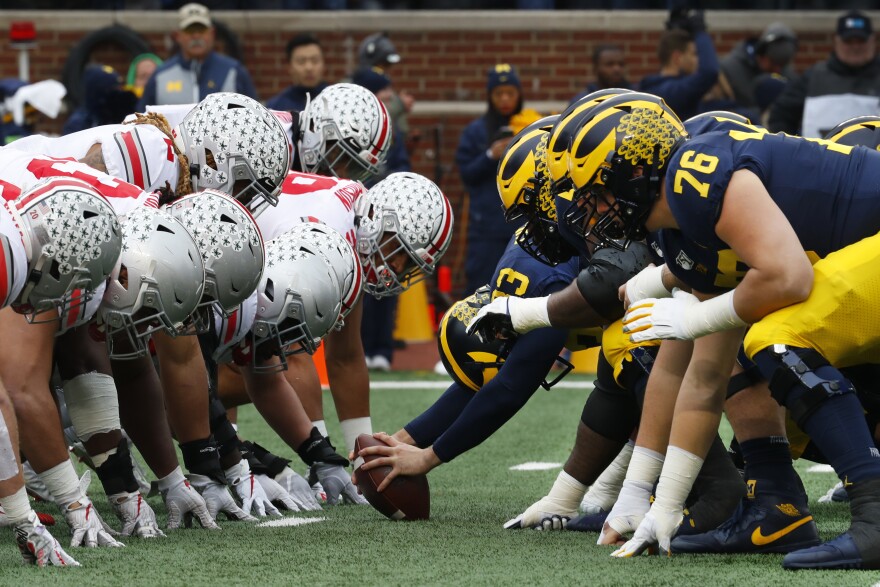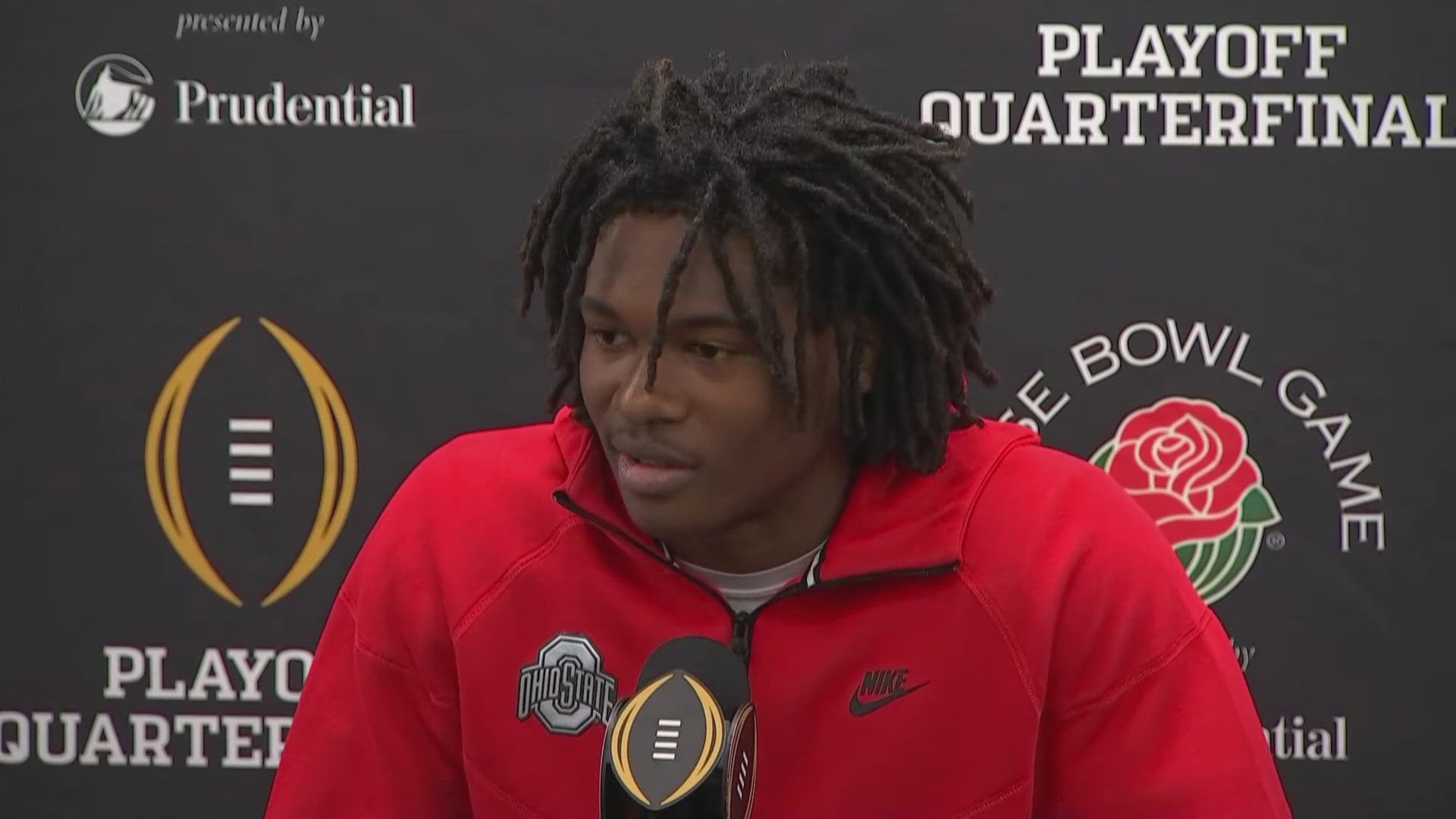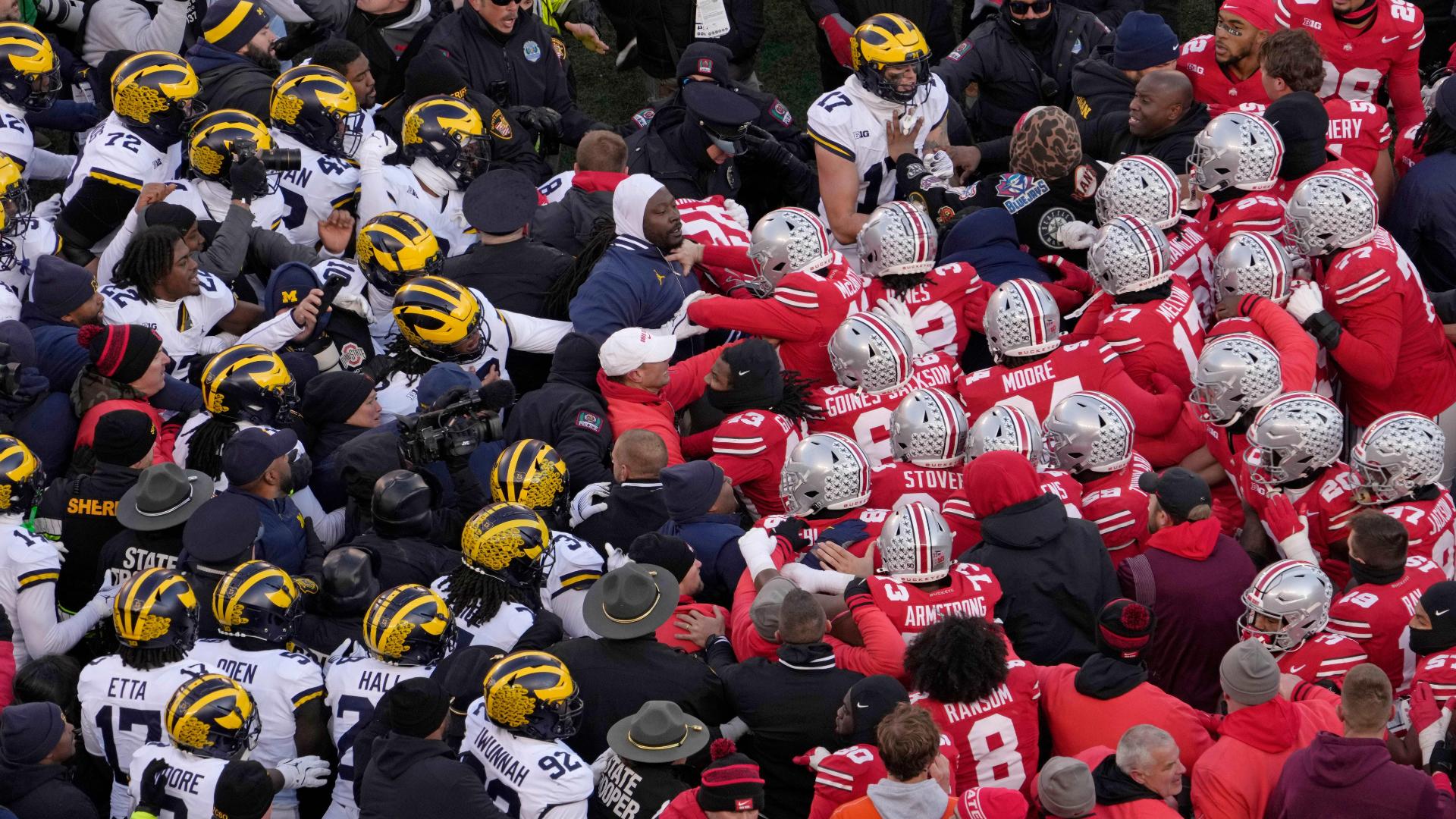BREAKING NEWS: Following Billionaire Elon Musk’s Statement on the X App Comparing Michigan and Ohio State, Jeremiah Smith Urges NCAA Fans to Delete the X App to Avoid Seeing “Garbage” Posts from Elon Musk
In a dramatic development that has sent waves of discussion through both the college football world and social media, NCAA star Jeremiah Smith has spoken out against billionaire Elon Musk’s recent comments on the X app (formerly Twitter), comparing two of college football’s most historic programs—Michigan and Ohio State. Following Musk’s controversial post, Smith has taken to social media, urging NCAA fans to delete the X app altogether, calling the posts “garbage” and adding that it’s better to avoid such content entirely.

The Controversial Musk Post
Elon Musk, known for his polarizing presence on social media, made waves recently with a post comparing Michigan and Ohio State in a manner that many fans and analysts found inflammatory. While the exact nature of Musk’s comments varied depending on the interpretation, his comparison was deemed by many to be dismissive of the Michigan Wolverines while favoring the Ohio State Buckeyes in a way that stirred up fierce debate.
Given the intense rivalry between the two schools, which has been a cornerstone of NCAA football for decades, Musk’s comments reignited the passionate and often heated debate between supporters of both teams. Musk, being one of the most prominent figures in the tech world, has a history of using his platform to make bold statements on various topics, but this particular post seemed to hit a nerve with college football fans who view these schools’ rivalry as sacred.

Jeremiah Smith’s Response
Jeremiah Smith, a standout player in the NCAA who has gained significant attention for his on-field talent and leadership, wasted no time responding to Musk’s post. In an impassioned message on social media, Smith called out Musk for his comments, referring to them as “garbage” and unnecessary. He expressed his frustration with the way Musk’s words had tainted the college football conversation and criticized the impact that such high-profile individuals could have on the integrity of sports discourse.
“Fans should not have to deal with this nonsense,” Smith tweeted. “Musk’s post has done nothing but stir up anger and division in a sport we all love. It’s time to stop giving attention to these types of posts. If you’re a real fan, delete the app and stop contributing to the noise.”
Smith’s words were quick to resonate with many who feel that Musk, with his immense influence, should be more mindful of how his words affect communities, especially one as passionate as the college football world.

Calls for Action from Fans
Jeremiah Smith’s call for NCAA fans to delete the X app has sparked a flurry of discussions across various platforms. College football fans have divided into two camps: those who support Smith’s viewpoint and advocate for disengaging from Musk’s posts, and those who defend Musk’s right to share his opinions, even if they are controversial.
Regardless of the differing opinions, the discourse surrounding Musk’s comments has brought attention to the broader issue of how powerful figures, particularly in tech and business, influence the public conversation about sports and other entertainment. Smith’s actions, while bold, represent a pushback against what many perceive as an intrusion of non-sporting figures into the sacred space of college football fandom.
The Bigger Picture: Social Media and Its Influence
Smith’s remarks also shine a light on the larger issue of social media’s impact on sports culture. As platforms like X (Twitter) continue to dominate conversations around sports, fans have had to navigate a space that is often cluttered with conflicting opinions, misinformation, and divisive rhetoric. The debate over Musk’s post raises the question of how social media can be better used to foster meaningful discussions and protect the integrity of sports communities.
Athletes like Jeremiah Smith are increasingly using their platform to challenge narratives and offer alternative perspectives. By urging fans to delete the X app, Smith has taken a stand against the negative influence that certain social media dynamics can have on fan behavior and the general sports discourse.

The Future of NCAA Rivalries and Social Media Engagement
As the rivalry between Michigan and Ohio State continues to be one of the most heated and celebrated in college football, the tension that Musk’s comments sparked may be a reminder of how deeply personal these rivalries can be. While Musk’s statement may have been a simple opinion to some, to fans, it was much more than that—it was an attack on their loyalty and history.
Looking ahead, this situation raises important questions about the role of celebrities and tech giants in shaping sports conversations. As Smith’s stance gains traction, more athletes and fans alike might begin to take a harder look at how they engage with social media platforms that, while offering a direct line to the public, can also perpetuate harmful narratives.
Conclusion: A Bold Stand Against Disruption
Jeremiah Smith’s call for NCAA fans to delete the X app after Elon Musk’s controversial comments about Michigan and Ohio State has sparked a nationwide conversation about the influence of social media and the responsibility of influential figures. His passionate defense of his sport and the fans who support it highlights the importance of maintaining the integrity of college football’s traditions.
The drama surrounding Musk’s post has, in many ways, shown the power of athletes like Smith to push back against external influences in the sports world. As the situation continues to unfold, it will be interesting to see how social media platforms respond and whether fans will heed Smith’s call for a more meaningful and respectful sports dialogue—free from the noise of irrelevant opinions.